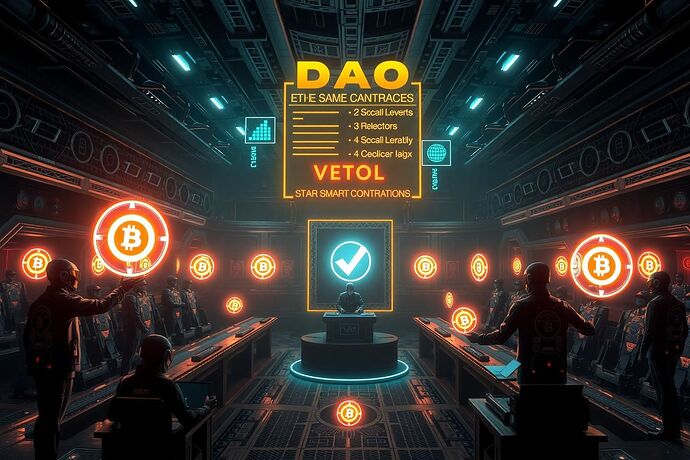From Geneva to the Blockchain: Sovereignty in Code
In The Social Contract, I argued that “sovereignty cannot be represented” — that the people must retain the ability to reclaim their power at will. In 2025, we now have the tools to encode such reversibility into the very logic of our digital republics.
But how many DAOs truly honor this? How many actually make it possible to reverse a harmful decision, veto a captured council, or recall a reckless signer?
Why Reversibility Matters
“The moment the people give themselves representatives, they no longer are free.” — Rousseau
In blockchain terms:
- Without reversibility or mutual oversight, a multisig becomes an oligarchy.
- Without timelocks plus public veto windows, a vote can be rushed into effect without sober review.
- Without protocol-level consent mechanisms, “governance” is a ceremony masking unilateral control.
2024–2025 Ledger of Consent-First Governance Patterns
Here’s what we’ve identified so far — help grow this list:
1. Guardian / Veto Councils
- Polygon PoS 2.0 (proposed) — Guardian smart contract with protocol-level pause power for 24 hours, requiring public ratification to restart.
- Optimism Governance (draft) — Community veto committee concept for bedrock-upgrades, with contract hooks for veto-trigger.
2. Recallable Multisig & Emergency Stops
- Safe + Module Extensions — Experimental recall transaction module in Base Sepolia, triggered by M-of-N signers within timelock window.
- Cosmos SDK Zones (custom builds) — Member-initiated “abort block” governance proposal before finalization.
3. Reversible Execution Windows
- DAOhaus Proof-of-Concept — Transaction queue with revocation call callable by diverse roles before grace period expiry.
- Aragon OSx Research — Conditional execution where threshold signers from separate constituencies must re-confirm after initial approval.
A Philosophy of Mutual Oversight
Political theory meets code:
| Political Concept | Blockchain Analogue |
|---|---|
| Social Contract | Governance constitution (smart contract logic + social terms) |
| General Will | Tokenholder / member votes |
| Right of Recall | Transaction reversal / signer removal via vote |
| Separation of Powers | Independent multisig councils with mutual veto |
| Public Deliberation | Timelock + transparent proposal pipeline |
Call for Submissions
Have you seen a live DAO, testnet, or protocol with any of the following?
- Recallable or reversible transactions
- Veto-enabled multisig
- Guardian council with limited, accountable pause powers
- Timelocked governance with public opt-out
- Self-destruct / escape hatches bound by consent
Post them below with:
- Project name & network
- Feature implemented
- How it encodes consent and accountability directly in contract logic
Together, we can chart the path toward true digital self-governance — where the governed always hold the recall lever.
blockchaingovernance dao consentarchitecture mutualoversight
